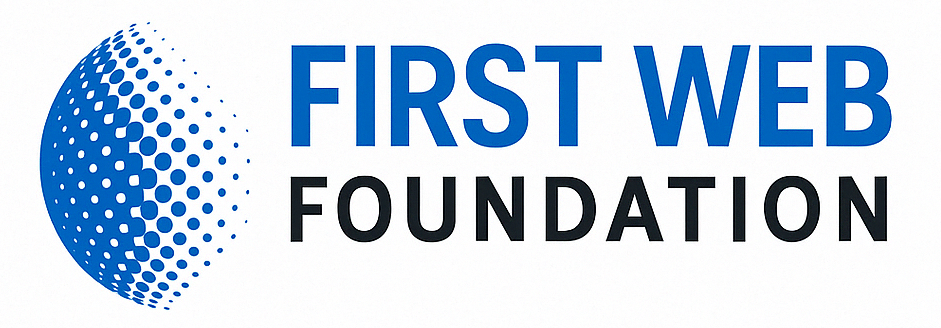Finding Exclusive Software Discounts for Non-Profit Organizations

Looking for exclusive software discounts for non-profit organizations? We’ve got you covered. In today’s digital age, having the right software tools can make a difference in streamlining operations and maximizing impact. However, finding affordable software options can challenge non-profit organizations with limited budgets.
That’s why we’ve compiled a comprehensive guide to help you safely navigate the world of software discounts. From utilising online discount collections to finding trustworthy partners and going direct to software companies, we have all the tips and tricks you need to find the best deals for your non-profit organization. So, let’s dive in and secure those exclusive software discounts!
Understanding the Importance of Software Discounts for Non-Profit Organizations
As non-profit organizations strive to impact society positively, they often face financial constraints limiting their ability to invest in technology and software solutions. However, software discounts enable these organizations to access the necessary tools and resources at more affordable prices. In this article, we will explore the benefits of software discounts for non-profit organizations, the importance of cost savings in their operations, and the impact that these discounts can have on organizational efficiency and productivity.
Types of Software Discounts Available for Non-Profit Organizations
Non-profit organizations have access to various software discounts that can help them meet their technological needs. Some of the most common discounts include discounted rates for popular software applications, free software options, and specialized software discounts for non-profit sectors.
Discounted rates for popular software applications allow non-profit organizations to access essential software tools such as productivity suites, project management software, and customer relationship management (CRM) systems at reduced prices. These discounts can significantly decrease the financial burden on non-profit organizations while still enabling them to benefit from industry-standard software solutions.
In addition to discounted rates, free software options are available for non-profit organizations. These options, often offered by software companies as part of their corporate social responsibility initiatives, provide non-profits with access to critical software tools without cost. Free software options can benefit organizations with limited budgets, allowing them to allocate resources to other mission-critical areas.
Furthermore, non-profit organizations can also take advantage of specialized software discounts tailored to their specific sectors. Typically, software companies aware of the particular requirements and difficulties faced by non-profit organizations operating in a specific industry offer these discounts. For example, non-profit organizations in the healthcare sector may be eligible for discounts on electronic medical record software or patient management systems. These sector-specific discounts ensure that non-profits can access the software tools that are most relevant to their work.
Finding Software Discounts through Charity Digital Exchange
One of the most effective ways non-profit organizations can find software discounts is through Charity Digital Exchange. Charity Digital Exchange is an online platform that offers a collection of software discounts specifically for non-profit organizations. In partnership with TechSoup and Charity Digital, this platform negotiates discounts with various software providers and makes them available to eligible non-profits.
Non-profit organizations can access software discounts through Charity Digital Exchange by following a simple process. First, organizations need to register with the platform to verify their eligibility. Once registered, they can search for software discounts that meet their needs. The platform provides detailed information about each discount, including the software provider, the eligibility criteria, and associated costs. Once a suitable discount is found, non-profits can click on the provided link to purchase the software directly from the provider.
Charity Digital Exchange offers various software discounts from different providers, ensuring that non-profit organizations can access a diverse selection of software solutions. This platform simplifies finding software discounts and provides non-profit organizations with a trusted source for affordable software solutions.
Working with Partners to Secure Software Discounts

Another way for non-profit organizations to secure software discounts is by partnering with organizations that specialize in negotiating discounts on their behalf. These partners, often called software brokers, have the knowledge, connections, and negotiation skills to secure the best possible discounts for non-profit organizations.
Partnering with an organization specializing in software discounts brings several benefits. Firstly, these partners can provide support and guidance in determining the specific software needs of the organization. They can help non-profits navigate the complex landscape of software options and assist in selecting the most suitable solutions.
Furthermore, software discount partners can offer additional advice and support on various considerations beyond software functionality. These considerations may include security, governance, user adoption, and training. By leveraging their expertise, non-profit organizations can ensure that they obtain software solutions that align with their broader organizational objectives and requirements.
Software discount partners also have the negotiation skills and industry relationships to secure the best prices for non-profit organizations. They can leverage their established connections with software companies to negotiate bulk discounts, even for organizations with few staff or volunteers. By working with these partners, non-profits can save valuable time and resources that would otherwise be spent on lengthy negotiations with software providers.
Direct Approaches to Software Companies for Discounts
In addition to utilizing software discount platforms and partnering with specialized organizations, non-profit organizations can also approach software companies directly to secure discounts. Many large software companies have dedicated teams that specifically support non-profit organizations and offer discounted pricing.
When approaching software companies directly, it is essential to identify companies that actively offer discounts to non-profit organizations. This information can often be found on the company’s website or by contacting their customer service department. Some software companies may have dedicated non-profit discount forms that organizations can fill out to request discounted pricing.
Although they may not have well-advertised non-profit discount programs, smaller software companies may still be willing to offer discounts to non-profit organizations. In these cases, contacting the company’s customer service department via phone or email is advisable to inquire about available discounts.
When applying for software discounts directly from companies, non-profit organizations may be required to provide documentation such as proof of their charitable status or annual reviews. It is essential to carefully review the terms and conditions of the discount offer to ensure that it aligns with the organization’s requirements and budgetary constraints.
Avoiding Scams and Ensuring Safety in Software Discount Transactions
While seeking software discounts, non-profit organizations must stay vigilant to avoid potential scams and protect their sensitive information. Recognizing warning signs of potential scams is essential to ensuring the safety and integrity of software discount transactions.
One of the key warning signs of a potential scam is a lack of proper communication and attentiveness from the discount provider. If the provider is not actively listening to the organization’s needs or continuously offers unrelated products or services, it may indicate an attempt to sell unnecessary or fraudulent software.
To verify the authenticity of software discount offers, non-profit organizations should conduct thorough research on the discount provider. Trusted suppliers and partners can be identified through online platforms or by seeking recommendations from other non-profits. Additionally, it is crucial to check if the supplier or brand is recognized and reputable within the industry.
Non-profit organizations should prioritize protecting sensitive information when engaging in software discount transactions. You can achieve this by ensuring the transactions take place on secure platforms and by carefully reading the terms and conditions that the software provider provides. Evaluating the safety measures implemented by the provider and clarifying any uncertainties about data security can help minimize the risks associated with sharing sensitive information.
Case Studies: Successful Software Discount Implementations in Non-Profit Organizations
To illustrate the tangible benefits of software discounts for non-profit organizations, we will explore real-life case studies of organizations that have successfully implemented discounted software solutions. These case studies will highlight the specific software solutions utilized, the impact on organizational operations and outcomes, and the quantifiable results achieved.
By examining these case studies, non-profit organizations can gain insights into the practical applications of discounted software solutions and understand how their own operations can benefit from similar strategies.
Best Practices for Maximizing the Value of Software Discounts
To maximize the value derived from software discounts, non-profit organizations should adopt best practices in assessing software needs, implementing software solutions, and monitoring their effectiveness.
One of the key strategies for maximizing the value of software discounts is to assess the organization’s software needs and requirements thoroughly. This involves identifying the specific functionalities and features required to support the organization’s mission and operations. By understanding these needs, non-profits can decide which software solutions to prioritize and select the most appropriate discounted options.
Another critical aspect of maximizing the value of software discounts is investing in training and support for software implementation. Non-profit organizations should allocate resources to train staff and volunteers on effectively using and integrating software solutions into their workflows. This ensures that the organization fully utilizes the software’s capabilities and maximizes its impact on operational efficiency.
Monitoring and evaluating the effectiveness of discounted software solutions is also crucial for maximizing their value. Non-profit organizations should establish metrics and performance indicators to assess the impact of software solutions on organizational outcomes. Regular evaluation and analysis of these metrics enable organizations to identify areas for improvement and make necessary adjustments to their software implementations.
Future Trends in Software Discounts for Non-Profit Organizations

As technology continues to evolve rapidly, the landscape of software discounts for non-profit organizations is expected to undergo significant changes. Understanding these future trends can help non-profit organizations stay ahead of the curve and leverage emerging technologies and partnerships.
Emerging technologies such as artificial intelligence, machine learning, and cloud computing will likely shape the future of software discounts. Non-profit organizations should anticipate the increasing availability of software solutions that harness these technologies and offer innovative features to support their operations.
Furthermore, potential collaborations and partnerships between software companies and non-profit organizations can expand the scope and availability of software discount offerings. Strategic alliances between technology providers and non-profit organizations can lead to more tailored software solutions that address the unique needs and challenges faced by non-profits.
Looking ahead, software discount programs in the non-profit sector are predicted to evolve to provide more comprehensive and integrated solutions for non-profit organizations. These programs may extend beyond software discounts to offer additional support services, such as training and consulting, to enhance the overall value provided to non-profit organizations.
Conclusion
Software discounts enable non-profit organizations to access the essential technology tools to advance their missions. Non-profit organisations can overcome financial constraints and improve operational efficiency and productivity by taking advantage of discounted rates, free software options, and specialized discounts. Whether through platforms like Charity Digital Exchange, partnerships with expert organizations, or direct approaches to software companies, non-profits have various avenues for securing software discounts. By navigating the software discount landscape safely and effectively, non-profit organizations can harness the power of technology to drive positive change in their communities.
